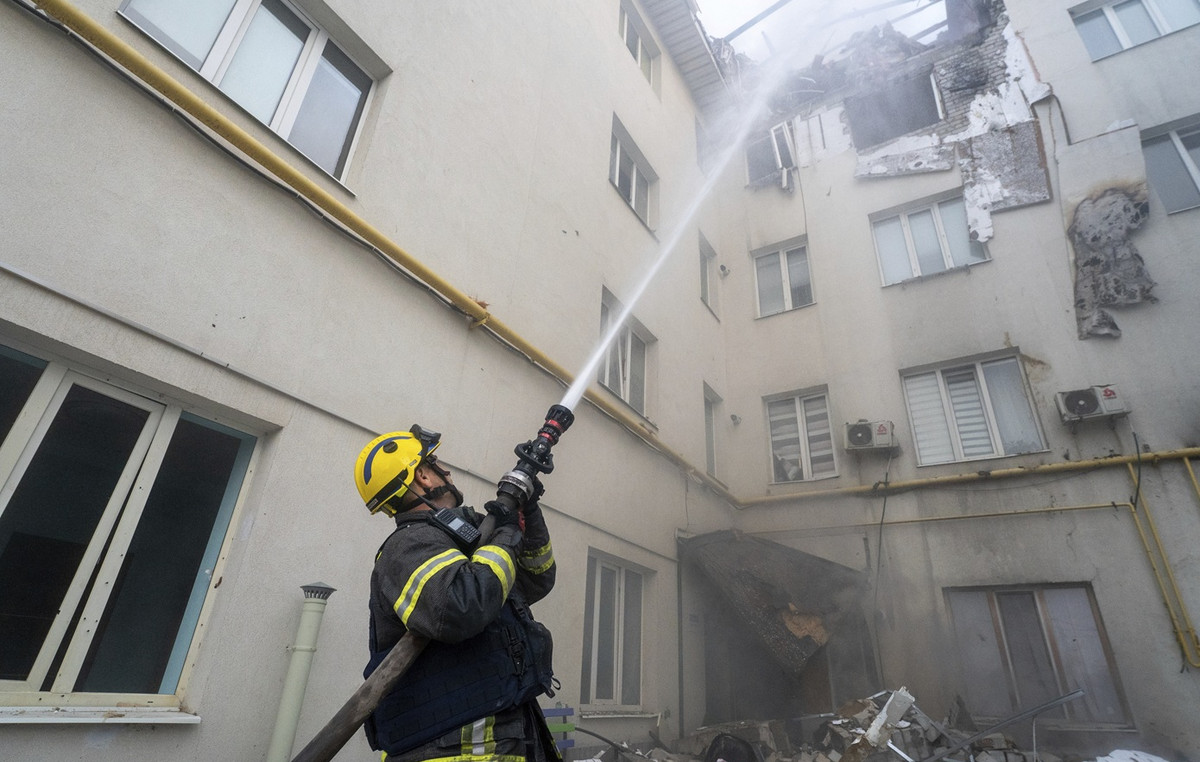The Argentine primaries, which take place this Sunday, are considered a good thermometer for the October elections, since voting is mandatory. However, there are uncertainties about how the votes will shift from those who lose the dispute between the opposition front candidates Together for Change: Patricia Bullrich, from the right, and Horacio Rodríguez Larreta, from the center.
“The discussion on Monday will be about interpreting the numbers”, predicts Guillermo Rodríguez Conte, director of Reportesud Consultores, in Buenos Aires. “How should they be interpreted? By candidate or by political force?”
Taking into account the ideological profile of the candidates, Larreta is closer to Sergio Massa, the Minister of Economy of the current left-wing government. But, taking into account the alliances, Bullrich and Larreta, who are running for the same ticket, would add up to many votes: around 32%, with 16% for each, according to a survey by the Opina institute, and 34%, with 18% for Larreta and 16% for Bullrich, according to a survey by the Management & Fit consultancy.
“The question is whether the winner of Together for Change gets the votes of the loser”, ponders Rodríguez. “Since Massa is ideologically similar to Larreta, one hypothesis is that part of those votes will shift to Massa and not to Bullrich.”
Argentina will hold primary elections on Sunday
There is also the possibility that, if Bullrich has a clear victory, part of the votes of the far-right candidate Javier Milei will switch to her in the first round. “But they are all hypotheses”, acknowledges the consultant.
Journalist Augusto Taglioni’s analysis of the Argentine website La Política is similar. “The reading that is made of the primaries is that no candidate could attract 100% of the votes of the other”, observes Taglioni. “For example, if Larreta beats Bullrich, it is more likely that an important percentage of her votes will go to Milei. Only 30% of Bullrich’s votes go to Larreta.”
The dispersion of votes scenario benefits Peronism, that is, the government group of President Alberto Fernández and his vice-president, Cristina Kirchner, who support Massa.
“The same applies to the opposite case, perhaps not in the same percentage”, analyzes the journalist. “Bullrich’s proximity to Milei could mean that in the second round of the election many Larreta votes will shift to Massa or some more moderate candidate”, he says.
“Anyway, these are just speculations. The campaigns were very violent. You have to see how the primaries end and how they settle down after Sunday.”

According to the latest survey of voting intentions by the Management & Fit consultancy, Larreta has 18% and Bullrich, 16%, which would add up to 34%, if this logic of party alignments is followed; Massa has 25% and the other Peronist pre-candidate, Juan Grabois, 6%, adding up to 31%; Milei has 17%, which, if they were destined for the right-wing candidate, would raise her share of the vote to 51%, meaning victory in the second round.
Death of protester creates new political fact
On Thursday, a protester died of a heart attack after being subdued by police in Buenos Aires. The protest was peaceful and from a small group of people who demonstrated “against the elections”, that is, against the political system. According to Rodríguez, this movement expresses a general frustration with the situation in the country, and proposes a blank ballot.
The dead demonstrator, the Argentinean Facundo Molares, 46 years old, was a combatant of the extinct Colombian guerrilla FARC for 15 years.
After the peace process, he moved to Bolivia, and was imprisoned there for almost a year. According to the newspaper El País, Molares was brought from Bolivia to Argentina on a plane sent by the government of President Alberto Fernández, in 2020. He was arrested in Argentina in 2021 due to a request for extradition from Colombia, due to the kidnapping of a alderman, occurred in 2009. Extradition was denied and he ended up released last year.
Rodríguez compares the death of Molares to that of George Floyd, asphyxiated by police in the US in 2020. “The police acted outside the rules”, says the analyst. There is a political context: Bullrich defends a firm hand against criminality and accuses Larreta, who is mayor of Buenos Aires, of not maintaining law and order in the city. “The death is very serious, but I think it strengthens Larreta’s base against Bullrich’s hard hand.” The mayor defended the role of the police in the episode.
Mercosur in the crosshairs
And how can all of this have repercussions on Mercosur?
During the period when Jair Bolsonaro and Mauricio Macri were presidents, there was a favorable environment for the reduction of the Common External Tariff (TEC), which, with an average of 13%, hinders free trade negotiations with developed countries, whose tariffs are on average of 4%.
A very timid agreement was reached to reduce the TEC, which was interrupted by the election of Fernández in 2019 and Lula last year. In theory, Bullrich would be more in favor of free trade; Larreta, less; and Massa, even less, although he is considered more liberal than Fernández and Kirchner.
But this does not necessarily translate into concrete measures, assesses Taglioni, because of the resistance of protected productive sectors.
“Bullrich seems to me to be a phenomenon similar to that of Bolsonaro”, he compares. “In the campaign they say a world of things that are then difficult to achieve. In Argentina, to do everything they want, they either make agreements with business groups and unions, or they have to suffer a series of very serious tensions and social conflicts.”
Source: CNN Brasil
Bruce Belcher is a seasoned author with over 5 years of experience in world news. He writes for online news websites and provides in-depth analysis on the world stock market. Bruce is known for his insightful perspectives and commitment to keeping the public informed.







